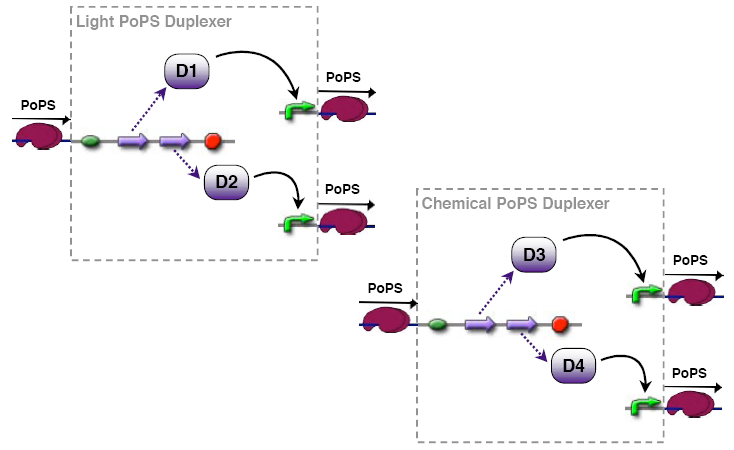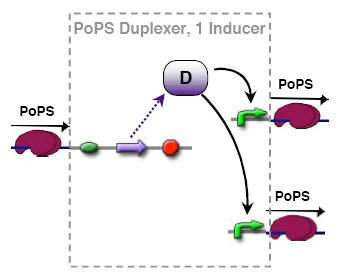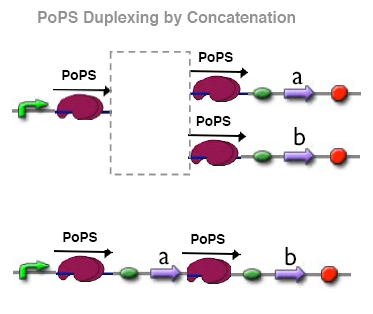ETH2006 copy
From 2006.igem.org
Contents |
PoPS duplexer device
This device has two PoPS outputs which in terms of activity should be duplicates of the input.
PoPS duplexers are needed if we want to preserve the strict PoPS input/output interface of devices.
Implementation alternatives
| General Duplexer | Simplified Duplexer | Duplexing by Concatenation |
| PoPS Duplexer Variants | ||
General Duplexer
The general duplexer variant offers most flexibility since both oututs can be controlled seperately. Ribosome binding sites of different strengths can be used to have different amplification factors on the ouptuts - which can be important if subsequent devices require input signals of different strengths. Another working point are the promoters, different promoter strengths also affect output signal strength. Note that some ribosome binding sites are missing in the illustration.
Simplified Duplexer
The simplified duplexer still facilitate specific output amplification, however, the only starting point is the promoters. Since both promoters are stimulated by the same activator, it might be more difficult to find appropriate promoters.
Duplexing by Concatenation
The direct way of PoPS duplexing is simple concatenation of two devices. The former device's output ends with the promoter - concatenation here means simply appending the inputs sequence (starting with ribosome binding site) of the subsequent device. Multiple input sequences of different gates can easily be appended. However, we loose the property of designated PoPS input/PoPS output boundaries for our devices.
For simplicity, we have anyway decided to use concatenation for PoPS duplexing - at least for the first experiments.


